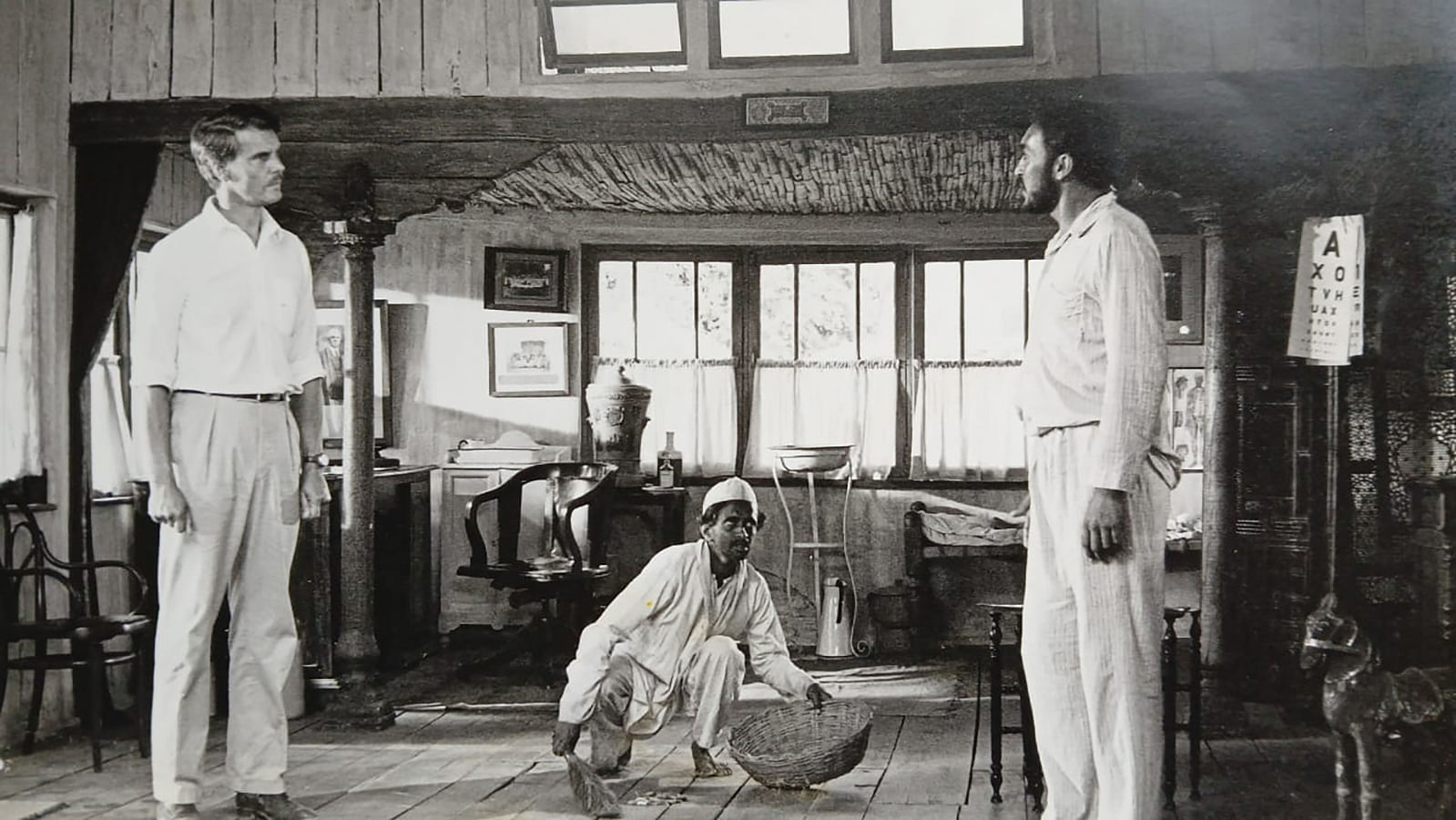
A sleepy city in the early 80s, Bengaluru was catapulted into the limelight in 1983 when British film director David Lean began the shooting of ‘A Passage to India’ adapted from E M Forster’s eponymous novel.
The 1984 film was shot largely in Bengaluru and Ramanagara and partly in Coonoor and Kashmir.
2024 marks 100 years since the novel was published and 40 years since the film was released. Set against the backdrop of British rule in India, the novel has stood the test of time as a significant piece of work on colonial India.
While the city earned some much-needed fame, scores of people worked in various capacities during the nine months of the filming. Three Bengalureans — H S Krishnamurthy (HaSaKru), Z H Khan and Ashok Mandanna essayed minor yet significant roles in the film while Arundhati Nag was an assistant director.
It was a rare opportunity to work alongside international stars such as Judy Davis, Peggy Ashcroft, Alec Guinness, James Fox, Victor Banerjee and under the baton of celebrated director Lean.
The film secured 11 nominations and won two Oscars.
Encouraged by her late husband Shankar Nag, Arundhati agreed to be interviewed by the film’s producers and landed the job. “It was a once in a lifetime opportunity and such a wonderful reaffirmation of my abilities,” she recalled, adding that Lean never had a female assistant director before.
Lean, in his mid-70s at the time and renowned for films such as ‘Lawrence of Arabia’, ‘Dr. Zhivago’ and ‘The Bridge on the River Kwai’ was a professional to the core. “Lean was from another world; he had the luxury of having his way. At that age, he was very punctual, he would make you do 25 takes till he got what he wanted.”
It was a great learning experience, admits Arundhati who brought the maturity of that learning a few years later to assist her husband in directing ‘Malgudi Days’ the popular television serial of the late 80s on Doordarshan.
There were some hard moments but everyone involved in the film had a whale of a time, she remembers, wondering if such a thing can happen again in Bengaluru. Four decades after that film, Arundhati still has two cane chairs on which Lean sat on location, serving as perennial memorabilia.
Krishnamurthy was baffled that an English lady had phoned his office requesting him to meet her at the West End Hotel.
Impulsively, he decided to cycle there and was “astonished” that the caller was Priscilla John, the casting director of the film.
Actively involved in Kannada theatre as part of B V Karanth’s repertory, he was recommended by a thespian. “Priscilla photographed me with her Polaroid camera and went to show it to David Lean rather nervously because he had rejected three others for the role I was called for,” the 84-year-old recounted.
Lean approved Krishnamurthy for the character of Hassan, the servant of Dr Azeez (Victor Banerjee) on the condition that he doesn’t trim his hair.
“Although my role was minor, it was an experience of a lifetime to work with western professionals,” he said.
During a particular scene at a railway station platform in Coonoor, a weary Krishnamurthy, had to, late at night, sit on Azeez’s luggage and load it inside when the train arrived. After executing the job, he heard a rapturous applause from the crew.
“That was the only scene that had one take, everyone was thrilled because Lean was known for 10, 15 or even 25 takes for some scenes,” he reminisced with pride.
Ashok Mandanna was well-known in theatre and film circles and had helped Priscilla John for casting for the TV series ‘Jewel in the Crown’. When Priscilla phoned him, offering a role in ‘A Passage to India’ and specified the payment terms, Mandanna minced no words in telling her that he would have paid to act in a David Lean film.
“Lean was the man who started my interest. I saw all his movies on 70 mm. Working with him was very interesting, a lifetime opportunity,” said Mandanna who acted as Anthony, the butler.
Lean had certain ideas about how a scene should be. “If he didn’t like the cloud formation in Doddaballapur, we had to wait for three days,” he adds with peeling laughter.
Mandanna who has done scores of plays from Shakespeare to Moliere to Pinter and acted in international productions such as ‘Mountbatten: The Last Viceroy’, said the most fascinating thing he learnt from Lean’s films was the way he edited sound.
Lean was exacting and expected actors to know what they were doing but “it was pure magic to be part of ‘A Passage…”
He candidly points out that where Lean missed his best was in not understanding the local ethos. “Casting Alec Guinness as Professor Godbole was a mistake.”
Z H Khan (Bunty), a veteran theatre personality of Bengaluru played the part of Dr Panna Lal, a Hindu doctor. Khan was popular with Lean during the entire shooting of the film. Lean believed that if Khan was in England he wouldn’t have stopped working, according to Mandanna.
Sadly, Khan passed away in 1985 in Bengaluru.